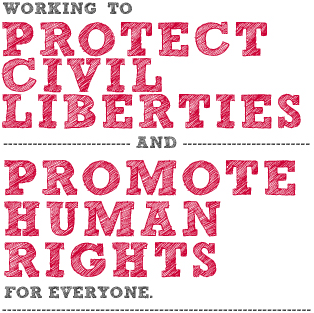 Liberty observes Human Rights Week
Liberty observes Human Rights Week
Excerpt, minor edit by Carolyn Bennett
Liberty on Human Rights
Human rights belong to every member of the human family
regardless of sex, race, nationality, socio-economic group, political opinion,
sexual orientation or any other status.
Human rights are universal. They apply to all people simply
on the basis of being human.
 Human rights are inalienable.
Human rights are inalienable.
They cannot be taken away simply because we do not like the
person seeking to exercise their rights. They can only be limited in certain
tightly defined circumstances, and some rights, such as the prohibition on
torture and slavery,
can never be limited.
Human rights are indivisible.
You cannot pick and choose which rights you want to honor.
Many rights depend on each other to be meaningful – so, for example, the right
to fair trial would be meaningless without the prohibition on discrimination,
and the right to free speech must go hand in hand with the right to assemble
peacefully.
Human rights are owed by the State to the people – this
means public bodies must respect your human rights and the Government must
ensure there are laws in place so that other people respect your human rights
too. For example, the right to life requires not only that the actions of those
working on behalf of the State do not lead to your death, but that laws are
also in place to protect you from the actions of others that might want to do
you harm.
 |
U.S. diplomat
Eleanor Roosevelt
UDHR 1948 |
Human rights were first recognized internationally by the Universal Declaration on Human Rights in 1948.
This was quickly followed by the adoption two years later of
the European Convention on Human Rights. In 1998 the Human Rights Act was
passed making the human rights in the European Convention on Human Rights
directly enforceable in the United Kingdom. It entered into force on October 2,
2000. The UK is also a party to a number of other international instruments
that seek to protect and promote other human rights.
 |
| At Liberty UK |
Liberty
Founded in 1934, Liberty (also known as the National Council
for Civil Liberties) is a cross-party, non-party membership organization at the
heart of the movement for fundamental rights and freedoms in Britain. Liberty
promotes “the values of individual human dignity, equal treatment and fairness
as the foundations of a democratic society. Through public campaigning, test case litigation,
parliamentary lobbying, policy analysis and providing free advice and
information, Liberty campaigns to protect basic rights and freedoms through the
courts, in Parliament and in the wider community.
Sources and notes
 |
At
Liberty website |
HUMAN RIGHTS
Right to Life
Right to Respect For Private Life
Prohibition of Torture or Degrading Treatment
Protection against Slavery
Right to Liberty and Freedom
Right to a Fair Trial
Freedom of Thought, Religion and Belief
Freedom of Assembly
Free Speech
Right to Marry
No Discrimination
Protection of Property
Right to Free Elections
Right to an Education
No Punishment without Law
HUMAN RIGHTS ACT
 Article 3 of the
First Protocol: Right to free elections
Article 3 of the
First Protocol: Right to free elections
Article 2 of the
First Protocol: Right to education
Article 1 of the
First Protocol: Protection of property
Article 14 No
discrimination
Article 12 Right
to marry
Article 11 Right
to protest and freedom of association
Article 10
Freedom of expression
Article 9 Freedom
of religion
Article 8 Right
to a private and family life
Article 7 No
punishment without law
Article 6 Right
to a fair hearing
Article 4 No
slavery or forced labor
Article 3 No
torture, inhuman or degrading treatment
Article 2 Right
to life
Article 5 Right
to liberty
What’s not to love, http://www.liberty-human-rights.org.uk/human-rights/human-rights/the-human-rights-act/what-the-rights-mean/index.php
Liberty: http://www.liberty-human-rights.org.uk/about/index.php
Sharmishta Chakrabarti
Sharmishta Chakrabarti is director of the British civil
liberties advocacy organization Liberty (2003 - ) and Chancellor of Oxford
Brookes University. Chakrabarti took her law degree at the London School of
Economics and later was a barrister with UK’s Home Office.
Before her appointment as director of Liberty, Sharmishta
Chakrabarti was that organization’s in-house counsel. Under her leadership, Liberty
has become an outstanding “opponent of counter-terrorism legislation” and “she
has campaigned against ‘excessive’ anti-terrorist measures, such as the Anti-terrorism,
Crime and Security Act 2001 (ATCSA), which followed the September 11, 2001,
attacks in the United States. http://en.wikipedia.org/wiki/Shami_Chakrabarti
Shami
Chakrabarti appeared this week (Friday December 13) on BBC Radio 4’s “Any
Questions”, a political debate and discussion chaired by Jonathan Dimbleby, http://www.bbc.co.uk/programmes/b03kvd59
___________________________________________________
Bennett's books are available in New York State independent bookstores: Lift Bridge Bookshop: www.liftbridgebooks.com [Brockport, NY]; Sundance Books: http://www.sundancebooks.com/main.html [Geneseo, NY]; Mood Makers Books: www.moodmakersbooks.com [City of Rochester, NY]; Dog Ears Bookstore and Literary Arts Center: www.enlightenthedog.org/ [Buffalo, NY]; Burlingham Books – ‘Your Local Chapter’: http://burlinghambooks.com/ [Perry, NY 14530]; The Bookworm: http://www.eabookworm.com/ [East Aurora, NY] • See also: World Pulse: Global Issues through the eyes of Women: http://www.worldpulse.com/ http://www.worldpulse.com/pulsewire
http://www.facebook.com/#!/bennetts2ndstudy
___________________________________________________





No comments:
Post a Comment